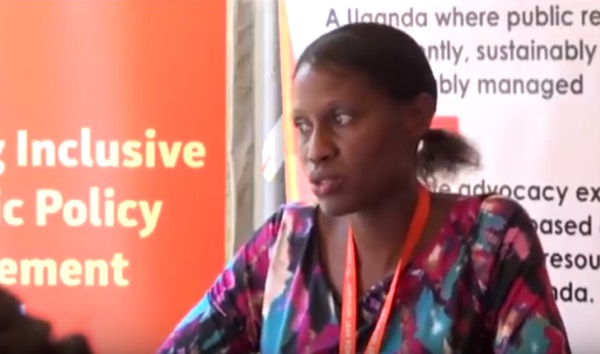A number of tax proposals have been lined up for the next Financial Year 2018/2019 that comes into force on 1st July this year. But well as the civil society strongly advocates for tax complying society, they are concerned about the way these taxes are administered. Among the concerns is the 30% corporation tax on SACCOs which had been given a 10-year tax waiver at the beginning of this running financial year. “There is a reason as to why this 10-year waiver was given. Now, one year is so short a period for you to turn around things. Remember even some of these cooperatives had actually adjusted some of their operations, some of their investments’ criteria or options based on this 10-year waiver. Now all of a sudden things are turning around, I think it is going to throw so many of our cooperatives into a very difficult position.” Said, Samuel Sentumbwe – Manager Partnerships, UCA.
“Bringing it back is to sort of putting measures to be able to get as much because it’s quite a lot of money. There are big SACCOs, so for us, our issue is if you are going to bring back the tax, let it be progressive.” Said, Nelly Busingye – Programme Officer, SEATINI. Well as taxation on SACCOs is not a bad idea, these argue that the manner in which it is applied will clear especially SACCOs in rural areas whose contribution to financial inclusion was picking up. “Let us have tiers whereby for example the very big SACCOs are subjected to some form of tax but not 30% because 30% is a little bit high. Then let’s give this other small SACCOs room to grow, then as they grow they will eventually come into this other tier that qualifies to be taxed.” Said, Samuel Sentumbwe – Manager Partnerships, UCA. “It would be good if government at least said SACCOs that have been in operation for at least five years and are making profits should be taxed. We have these rural SACCOs which are making losses and we also want them to develop. If you are going to start taxing their income, we shall really be discouraging people from joining SACCOs. So some of those should really be exempted from taxes at least for a period of five years.” Said, Imelda Namagga – Programme Manager, UDN.
The civil society says this is just among the example of how the government has failed to expand the tax base to rightful areas but opted to concentrate on the usual compliant taxpayers. “For example when you go to the villages, there is a lot of activities that are happening. But when you see the Uganda Revenue Authority or how the government is trying to tap into those other sectors, I don’t think it is being adequately done.” Said, Samuel Sentumbwe – Manager Partnerships, UCA. "But now if you get into mobile money use over the top services Facebook, Twitter and what more, you are basically targeting those that you see on a daily basis and you can be able to track. But you are not keeping in mind that these people have very low incomes.

